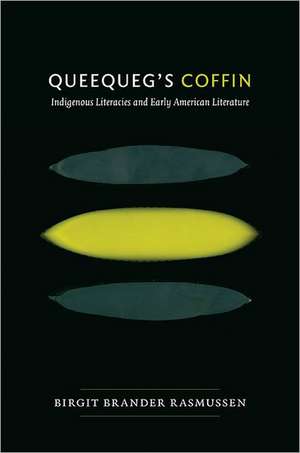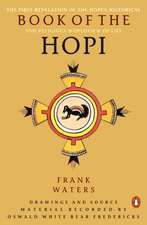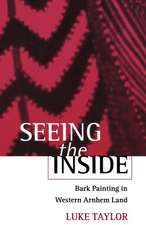Queequeg`s Coffin – Indigenous Literacies and Early American Literature
Autor Birgit Brander Rasmussen Limba Engleză Paperback – 5 ian 2012
Preț: 238.39 lei
Nou
Puncte Express: 358
Preț estimativ în valută:
45.63€ • 49.58$ • 38.35£
45.63€ • 49.58$ • 38.35£
Carte tipărită la comandă
Livrare economică 21 aprilie-05 mai
Preluare comenzi: 021 569.72.76
Specificații
ISBN-13: 9780822349549
ISBN-10: 082234954X
Pagini: 224
Ilustrații: 1 map, 10 figures
Dimensiuni: 156 x 233 x 16 mm
Greutate: 0.34 kg
Editura: MD – Duke University Press
ISBN-10: 082234954X
Pagini: 224
Ilustrații: 1 map, 10 figures
Dimensiuni: 156 x 233 x 16 mm
Greutate: 0.34 kg
Editura: MD – Duke University Press
Recenzii
Quequeegs Coffin sweeps away the origin stories of American literature by beginning with the encounter between European colonialism and indigenous cultures; it revises prevailing notions of literacy and writing by placing indigenous literary traditions alongside, and in dynamic relation to, the alphabetic systems of the colonizers; and it emphasizes the often volatile interactions between, and continuing sycretism among, vastly different notions of literacy. It is the realization of an exciting, ambitious undertaking. David Kazanjian, author of The Colonizing Trick: National Culture and Imperial Citizenship in Early AmericaBirgit Brander Rasmussens exploration looks into the formation of the Americas beyond and below imperial/national boundaries. The excavation she proposes invites us to rethink what American literature means. Beyond literature written in alphabetic characters and English language, there are American literatures in other imperial languages as well. But, above all, there are non-alphabetic writings and Native Americans narratives as well as Afro-American and Arabic literacies among slave narratives. This book announces the end of an era in the national literary imagination and opens up America beyond the United States. Walter D. Mignolo, author of The Darker Side of Western Modernity: Global Futures, Decolonial Options
Notă biografică
Cuprins
Descriere
Rather than seeing American literature as beginning with the writings of English or Spanish colonists, Brander Rasmussen points to the wide variety of indigenous writing in the Americas prior to colonization. From the earliest periods of colonial arrival, there were conversations between indigenous people and European settlers and between their texts as well. Brander Rasmussen proposes a literature of the Americas that includes both indigenous and alphabetic literatures and looks comparatively at the interactions. The study looks at writing between 1524 and the mid-19th century work of Herman Melville.











